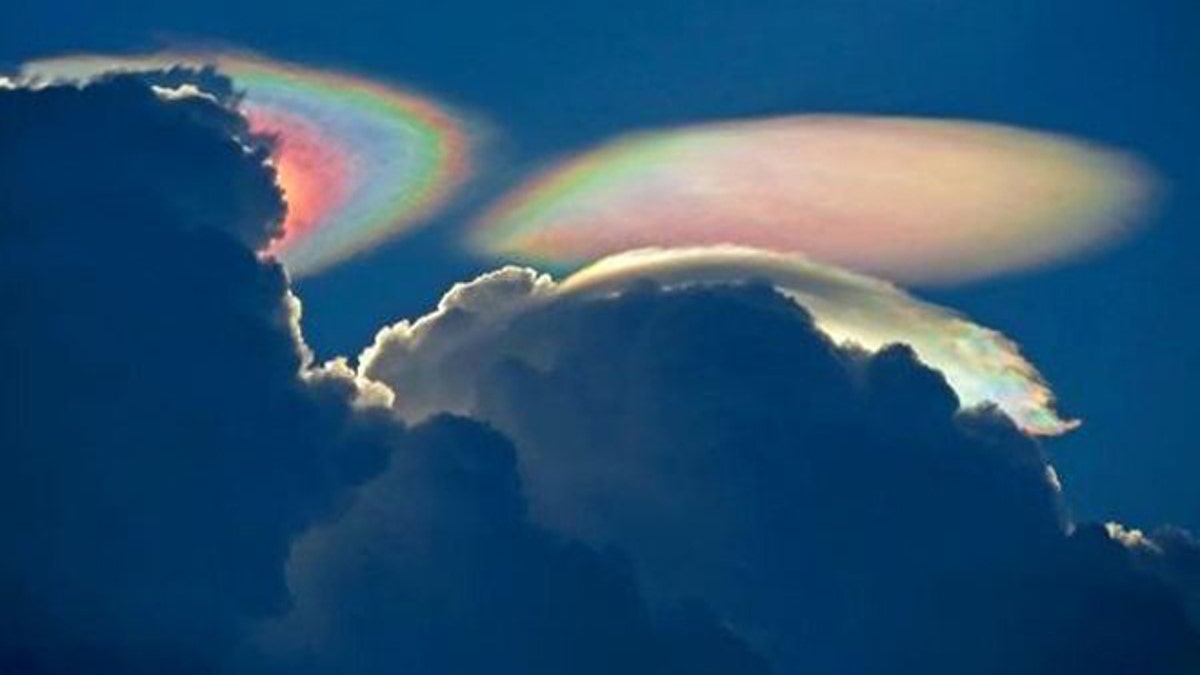
July 31, 2012: This "fire rainbow," or iridescent cloud, was captured over South Florida. (Ken Rotberg / WPTV)
So-called "fire rainbows" are neither on fire nor are they rainbows, but they sure are stunning.
They are technically known as iridescent clouds, a relatively rare phenomenon caused by clouds of water droplets of nearly uniform size, according to a release by NASA. These clouds diffract, or bend, light in a similar manner, which separates out light into different wavelengths, or colors.
That makes them similar to rainbow-colored glories, which are also formed by diffraction, and also produce an oscillating pattern of colors ranging from blue to green to red to purple and back to blue again.
Although iridescent clouds have rainbow-like colors, the way light is scattered to produce them is slightly different. Rainbows are formed by refraction and reflection. When light is refracted, it is bent by passing through mediums of different densities, such as water or a prism. Reflected light bounces off a surface at an angle equal to the angle it hit the surface at. Diffraction, though, involves light waves being scattered into a ring-like pattern.
As with other iridescent objects, like peacock feathers, the color changes depending upon one's position relative to the sun and the object.
Iridescence usually occurs in newly formed clouds. That appears to be the case here as well. According to the Weather Channel, these are pileus clouds caused by a fast-growing thunderstorm that shoved air into the upper atmosphere through a layer of moisture. This created a fog-like cloud that looks like a glowing dome atop the thunderstorm.
Iridescent clouds are not to be confused with circumhorizontal arcs, which form bands of color parallel to the horizon.
The phenomenon was captured in a photo taken on Tuesday (July 31) in the clouds over South Florida.
- Weirdo Weather: 7 Rare Weather Events
- Video: Double Rainbow, Now With Lightning!
- Quadruple Rainbow Photographed for First Time
Copyright 2012 OurAmazingPlanet, a TechMediaNetwork company. All rights reserved. This material may not be published, broadcast, rewritten or redistributed.
